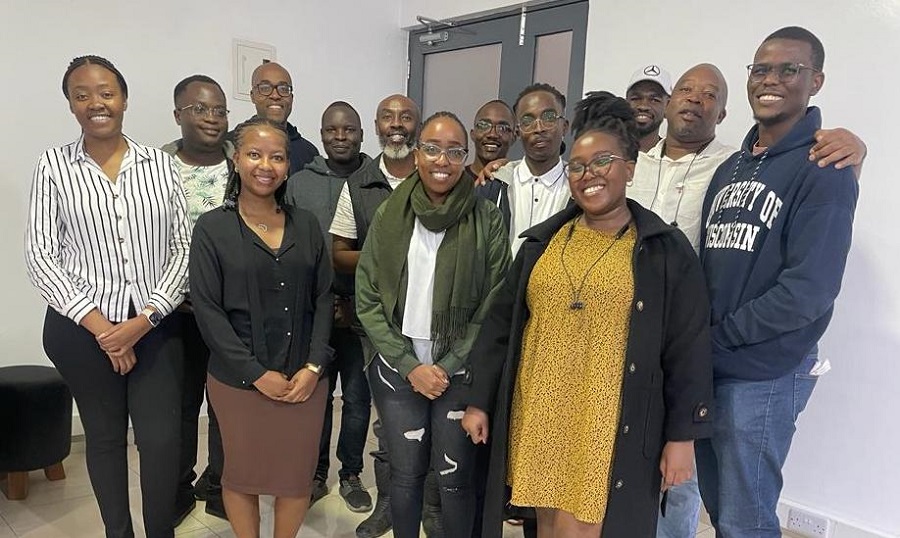Kenyan startup Tappi is helping SMEs build their online identity in less than two minutes through a chat tool that automatically creates a webpage, which is indexed to be found online.
Founded by Kenfield Griffith and Louis Majanja, Tappi allows SME owners to download its app, add their “look and feel”, and promote their business through a three-step process that goes to Google Ads, Facebook Ads, and Instagram Ads using airtime credit or mobile money.
Consumers who find these businesses can get in contact with the business directly via WhatsApp, saving the SMEs on costs such as food-ordering apps as Tappi allows payments from customers. It also captures verified reviews.
Griffith and Majanja previously built Ajua, which offered customer experience management tools to large banks, retail, and mobile operators. Its customers included Kenya Airways, KCB, NCBA, and hospitals across the region, and the startup captured consumer sentiments on US$1 billion worth of transactions.
“While building Ajua we got requests from SMEs for similar software. We tried to build this inside of Ajua but realised that SMEs had more sophisticated needs such as a mobile-first product, automation, and the need for smarter systems to simplify the UI/UX. We quickly learned that this was a totally different business. Louis and I spun out Tappi from Ajua with some of the team members to build Tappi, an entirely new company to focus on building SaaS for SMEs,” said Griffith.
The digital economy is growing rapidly in Africa, with over 240 million digital shoppers, and the Tappi team believes SMEs need to be on the internet to grow their business and compete.
“However, SMEs still struggle to get online to build their online credibility to find more customers, because the current tools are too complex, require an international credit card, or the businesses end up on the internet in places where trust is difficult to gauge,” said Griffith.
“There’s a growing need for SMEs to be online and digital, to participate in the US$180 billion internet economy. However, the gap that exists is the ability to find customers digitally and build trust with these customers to convert them into long-term customers. Unlike other solutions in the market that requires a laptop device, an international credit card, or focus on the bottom of the funnel operational efficiencies, Tappi focuses on the top of the funnel – finding customers for SMEs digitally.”
The startup especially focuses on the service industry, which includes food, health and beauty, and fashion, and has a subscriber base that is growing at over 20 per cent month-on-month.
“We do, however, have a lot to do to minimise onboarding friction, and really understand these growth levers now as a seed-stage company as we see many more partnerships across Africa,” said Griffith.
Tappi is currently present in Kenya and Nigeria, and is setting up relationships with partners in Ivory Coast to give it access to Francophone Africa. Investors include SOSV, with which Tappi took part in the Orbit Startups accelerator recently, as well as a bunch of respected angels.
“We are supported by some great investors and advisors both in our markets in Africa, and globally,” Griffith said.
“As SaaS founders, our goal was to build strong unit economics that follow the traditional SaaS model of 70 per cent to 85 per cent gross profit margins. We are a monthly subscription model for a full-stack tool. SMEs get their online identity, verified reviews, Tappi Phonebook, and their online and offline marketing tools. They can either access Tappi services through direct sales or through their business mobile data plan from their preferred provider.”
Any key learnings? Griffith said he had never “spun out” a company before, so that in itself had been a learning curve.
“Some difficulties we’ve encountered are usually pegged to going back to the fundamentals of being a small startup, having to wear many hats, and many fires burning,” he said. “We believe our job to be done is to remove friction and complexity in the tools SMEs use and enable them to find customers digitally. We want these SMEs to grow their business and participate in the US$180 billion digital economy. Solving this difficult problem keeps us grounded and focused.”


